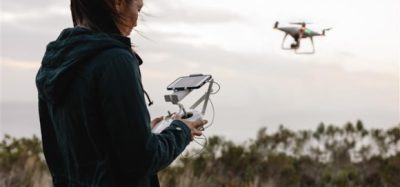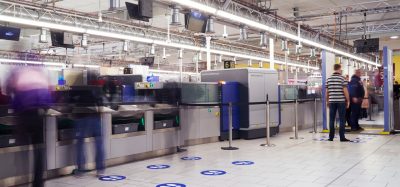Facial recognition pilot programme launched at Barcelona-El Prat Airport
- Like
- Digg
- Del
- Tumblr
- VKontakte
- Buffer
- Love This
- Odnoklassniki
- Meneame
- Blogger
- Amazon
- Yahoo Mail
- Gmail
- AOL
- Newsvine
- HackerNews
- Evernote
- MySpace
- Mail.ru
- Viadeo
- Line
- Comments
- Yummly
- SMS
- Viber
- Telegram
- Subscribe
- Skype
- Facebook Messenger
- Kakao
- LiveJournal
- Yammer
- Edgar
- Fintel
- Mix
- Instapaper
- Copy Link
Posted: 22 December 2021 | International Airport Review | No comments yet
Josep Tarradellas Barcelona-El Prat Airport has begun the trials for a passenger facial recognition programme, including self-bag drop, in partnership with Aena, Vueling, and other technology companies.


Aena, together with Vueling and the group of technology companies consisting of Easier, IDEMIA, Indra, Materna IPS, and Mobbeel, has launched a facial recognition pilot programme for boarding at Josep Tarradellas Barcelona-El Prat Airport (BCN). This is the first time in Europe that all the steps a
passenger takes at an airport have been integrated into one process, and includes, for the first time, self-bag drop. The goal is for passengers to be able to travel all the way to the plane without having to show any identification.
Based on an identification technology that recognises the physical and non-transferable characteristics of people, biometric devices have been installed in the check-in area, so that passengers can self-check-in their baggage, at the entrance to the security checkpoint, and at the boarding gate, where the passengers’ biometric data, facial features (image of their face) and documentation (DNI or passport) will be validated. This streamlines the process and enhances security, from the time a passenger registers online at home until they board their flight. The documents are validated with biometric data only once during the pilot project, as long as the passenger gives their consent for subsequent flights.
Aena is currently the sole owner of the biometric database, and is therefore responsible for its management, and the information collected is processed in accordance with the General Data Protection Regulation (GDPR) contained in European Regulation 2016/679 on the processing of personal data and the free movement of such data.
This collaborative project between Vueling and Aena began several months ago with the airline’s passengers on the Barcelona to Malaga route. This is the most comprehensive pilot test being conducted at an Aena airport, since it incorporates biometric technology into four travel processes: check-in, luggage check-in, security checkpoint and boarding.
In order to access the plane using their face, the passenger has to open the Aena app, go into the ‘facial recognition’ section and fill in the form. The registration can also be done physically at Josep Tarradellas Barcelona-El Prat Airport in two kiosks opposite gate B35 and in the Vueling self-check-in area.
Participating passengers will have exclusive access at security checkpoints and the boarding gate on the Barcelona to Malaga route, thus benefiting from a smoother process. They will also have the option to leave their suitcase at the self-bag drop by simply using facial recognition. Passengers can participate in this pilot programme voluntarily and travel more quickly, efficiently and without contact.
Aena’s CGO and Director of Innovation, Sustainability and Customer Experience, Amparo Brea said that: “This project, part of Aena’s Strategic Innovation Plan, is the last step in a series of actions led by the company since early 2019 aimed at testing the use of biometric systems at different points in the airport.
“We are convinced that this technology will significantly improve the passenger experience at our airports, and these projects allow us to speed up its deployment. We provide passengers with tools that allow them to pre-empt part of the documentation checks currently carried out at he airport, so they can move through it more securely, smoothly and comfortably”.
Calum Laming, Chief Customer Officer of Vueling commented: “Being able to offer such a comprehensive biometric experience confirms our desire to improve our customers’ experience at the airport, and it also makes for a much more streamlined and modern customer flow. This is a highly
technological project, a key element in Vueling Transform and in our digitisation strategy to improve our service, and to give customers more autonomy and flexibility in managing their travel experience”.
Related topics
Airport development, Baggage handling, Biometrics, Digital transformation, Passenger experience and seamless travel, Security, Self-service, Terminal operations


















